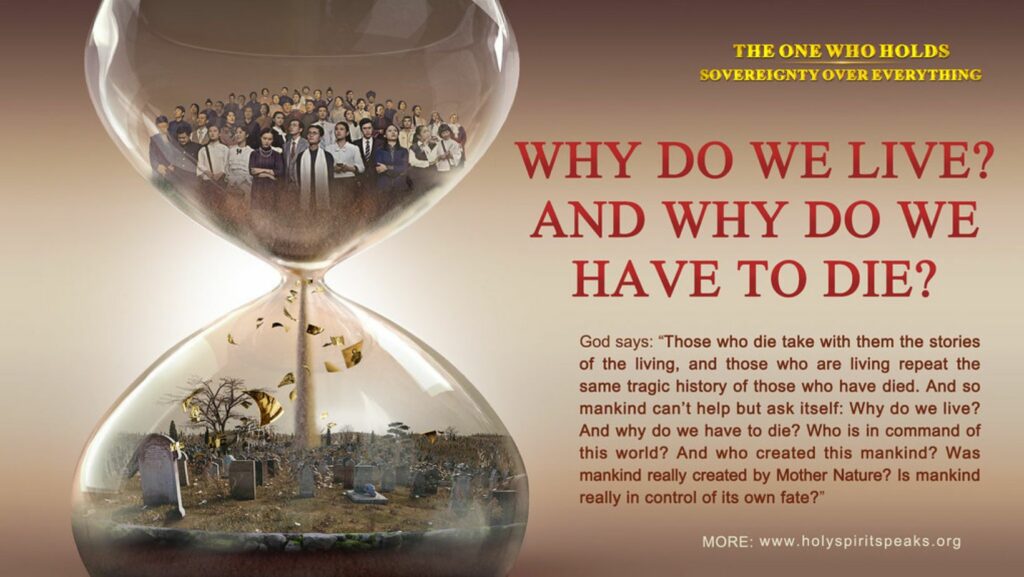
Why Do We Live
Have you ever pondered the profound question, Why do we live? It’s a query that has captivated minds for centuries, prompting reflections on the purpose and meaning of existence. From philosophical debates to personal introspection, the quest to unravel the essence of life is a journey that each individual embarks on in their own unique way.

In a world brimming with complexities and uncertainties, understanding the driving force behind our existence can provide clarity and direction. Exploring the depths of human nature, spirituality, and science offers glimpses into the intricate tapestry of life’s mysteries. Whether driven by a quest for fulfillment, a pursuit of knowledge, or a desire to leave a lasting legacy, the reasons behind our existence are as diverse as the individuals themselves.
Exploring the Fundamental Question: Why Do We Live?
Exploring the essence of human existence unveils various perspectives that attempt to elucidate the purpose of life. These viewpoints draw from philosophy, spirituality, and scientific inquiry, offering diverse insights into the profound question that has captivated generations.
Philosophical Perspectives on Human Existence

Philosophical contemplations on human existence delve into the fundamental aspects of life, questioning the nature of reality, consciousness, and morality. Philosophers tackle existential inquiries to decipher the meaning behind our existence, posing deep reflections on the value of life, free will, and the pursuit of happiness. Each philosophical viewpoint contributes unique interpretations to the complex tapestry of human experience, enriching our understanding of the purpose and significance of life.
Religious Views on the Purpose of Life
Religious traditions provide profound insights into the purpose of life, weaving intricate narratives of creation, morality, and ultimate salvation. Across different faiths and beliefs, the notion of a higher power or divine plan shapes the understanding of human existence, guiding individuals on a spiritual journey towards fulfillment and enlightenment.
Evolutionary Biology and the Survival Instinct
Evolutionary biology posits that the fundamental drive for living stems from the core principle of survival. The theory suggests that individuals are biologically wired to seek survival and reproduction to ensure the continuity of their genes. In essence, the will to live is ingrained in our genetic makeup, guiding our behaviors and decisions towards enhancing our chances of survival and passing on our genetic material to future generations.
Psychology Behind the Will to Live
Psychology delves into the intricate workings of the human mind to unravel the complexities of the will to live. It encompasses various factors such as resilience, adaptation, and motivation that influence an individual’s determination to thrive and persevere in the face of adversity. Psychological theories shed light on how human experiences, emotions, and cognitive processes interplay to shape our attitudes towards life and drive our innate desire for self-preservation and fulfillment.
Existentialism and Modern Thoughts on Living
Existentialism, a prominent philosophical movement in the 20th century, explores essential questions about human existence and the individual’s search for meaning in an indifferent universe. It emphasizes personal responsibility, freedom, and the importance of authentic living.

- Jean-Paul Sartre: Sartre, a leading existentialist thinker, believed in the concept of “existence precedes essence,” asserting that individuals define themselves through their actions and choices. He famously stated, “Existence precedes essence,” highlighting the idea that people are responsible for creating their own identities through their decisions.
- Albert Camus: Camus, known for his philosophy of the absurd, examined the human condition in a world devoid of inherent meaning. He proposed that while life may lack intrinsic purpose, individuals can rebel against the absurdity by finding personal meaning and embracing the joys of existence.
- Simone de Beauvoir: De Beauvoir, a prominent existential feminist philosopher, explored themes of freedom, oppression, and the construction of gender roles. She emphasized the importance of women’s agency in defining their existence and challenging societal norms.
- Martin Heidegger: Heidegger delved into the concept of “being-in-the-world,” focusing on how individuals exist in relation to their environment and other beings. He highlighted the interconnectedness between human existence and the world, emphasizing the significance of our lived experiences in shaping our understanding of being.
- Friedrich Nietzsche: Nietzsche’s philosophy centered on the idea of “eternal recurrence” and the “will to power.” He emphasized the importance of embracing life’s challenges and overcoming obstacles to achieve personal growth and self-realization.
These philosophers’ diverse perspectives on existence continue to influence modern thoughts on living, inspiring individuals to contemplate the meaning of life, embrace personal agency, and strive for authenticity in a complex and ever-changing world.
